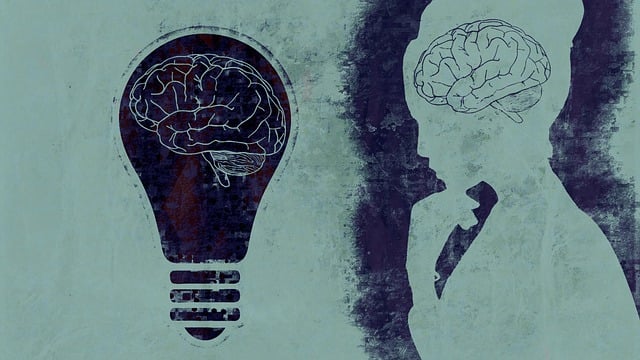Broomfield Terminal Illness Therapy offers a holistic approach to enhancing social interaction for individuals with mental health conditions. Their unique program combines interactive workshops, supportive group settings, and mental health education to teach essential skills like emotional intelligence, communication, and stress management. Through role-playing, cognitive reframing, community outreach, and reflective journaling, clients gain confidence, learn coping strategies, and develop resilience, ultimately improving their overall mental wellness and preventing isolation or burnout.
Social skills training is a powerful tool in supporting individuals with mental health conditions, fostering better connections and enhancing overall well-being. This article explores the intricate link between social abilities and mental health, offering insights into innovative approaches like Broomfield Terminal Illness Therapy. We’ll delve into key strategies for improving social interactions, providing practical guidance for integrating these training methods into comprehensive mental health care plans.
- Understanding the Connection Between Social Skills and Mental Health
- Broomfield Terminal Illness Therapy: An Approach to Enhancing Social Interaction
- Key Components of Effective Social Skills Training
- Strategies for Integrating Social Skills Training into Mental Health Care Plans
Understanding the Connection Between Social Skills and Mental Health

Social skills play a pivotal role in an individual’s mental health and well-being. Many mental health conditions can stem from or be exacerbated by difficulties interacting with others, leading to feelings of isolation and depression. Conversely, enhancing social skills can empower individuals to navigate their conditions more effectively, fostering connections that support their inner strength development. For instance, someone navigating a terminal illness might find solace in joining support groups, where shared experiences and empathy create a sense of community.
At Broomfield Terminal Illness Therapy, we recognize the intricate link between social interactions and mental health. Our approach to therapy emphasizes not only addressing the symptoms of various conditions but also teaching essential skills for building and maintaining healthy relationships. This includes promoting emotional intelligence, a key component in burnout prevention, as it equips individuals with the ability to understand and manage their own emotions while empathizing with others. By nurturing these skills, we aim to help clients develop resilience, improve their quality of life, and promote overall emotional well-being.
Broomfield Terminal Illness Therapy: An Approach to Enhancing Social Interaction

Broomfield Terminal Illness Therapy offers a unique approach to enhancing social interaction for individuals navigating mental health conditions. This innovative program recognizes the profound impact of social connections on overall well-being, particularly during challenging times. By focusing on fostering meaningful interactions, it equips participants with essential social skills tailored to their specific needs.
Through interactive workshops and supportive group settings, Broomfield Terminal Illness Therapy encourages open communication, active listening, and empathy. Mental health education programs design plays a pivotal role in this process, teaching individuals effective stress management techniques that facilitate positive social exchanges. Public awareness campaigns development also contributes by breaking down stigma and promoting understanding, creating an environment where participants feel empowered to engage socially while maintaining their mental health.
Key Components of Effective Social Skills Training

Social Skills Training for Mental Health Conditions: Key Components
Effective social skills training for individuals managing mental health conditions involves a multi-faceted approach tailored to address specific challenges. At Broomfield Terminal Illness Therapy, we recognize that navigating social interactions can be especially daunting, leading to feelings of isolation and increased distress. Therefore, our program incorporates essential components like role-playing scenarios, cognitive reframing techniques, and group discussions to foster better communication and interpersonal understanding. By engaging in these activities, participants learn to interpret social cues, express their needs assertively, and build supportive relationships, ultimately enhancing their overall mental wellness.
Community Outreach Program Implementation plays a pivotal role in broadening these skills’ applicability. Through real-world practice sessions, individuals gain confidence interacting in diverse settings, preventing burnout by offering coping strategies for high-stress situations. Additionally, encouraging Mental Wellness Journaling Exercises guides participants to reflect on their experiences, track progress, and identify areas requiring further attention. This holistic approach ensures that our training goes beyond the session, empowering individuals to thrive in various aspects of their lives.
Strategies for Integrating Social Skills Training into Mental Health Care Plans

Integrating social skills training into mental health care plans is a strategic move that can significantly enhance patient outcomes. At Broomfield Terminal Illness Therapy, we recognize that many mental health conditions can isolate individuals from their support networks and communities. Thus, our approach focuses on empowering clients with essential social skills to navigate interpersonal interactions confidently. This involves tailoring sessions to address specific challenges, such as communication barriers or social anxiety, using evidence-based techniques.
One effective strategy is incorporating role-playing exercises into therapy, enabling clients to practice new skills in a safe environment. Additionally, we encourage the development of a self-care routine that includes setting boundaries and prioritizing rest, which are crucial for maintaining mental wellness. For those eager to explore further, producing a mental wellness podcast series can be an excellent way to share insights and tips, fostering a sense of community among listeners.
Social skills training, as exemplified by Broomfield Terminal Illness Therapy, plays a pivotal role in enhancing mental health care. By focusing on key components such as communication, empathy, and group interaction, this approach can significantly improve individuals’ ability to navigate social situations. Integrating these strategies into mental health care plans allows for a holistic treatment that addresses both the mind and the social realm, fostering better outcomes and improved quality of life for those dealing with various mental health conditions.














